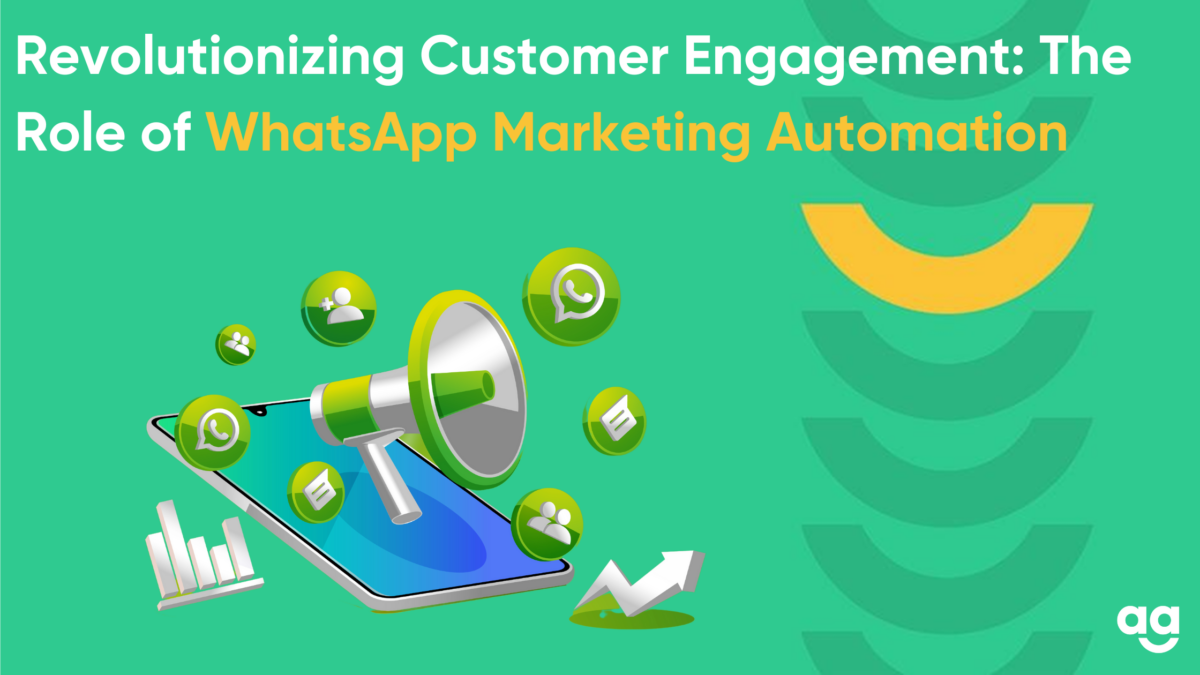Introduction
In the digital age, businesses are constantly seeking innovative ways to engage with their customers and build strong relationships. WhatsApp, the popular messaging platform, has emerged as a powerful tool for customer engagement.
With the advent of WhatsApp marketing automation, businesses can now streamline their communication, deliver personalized messages, and enhance customer experiences. This article delves into the role of WhatsApp marketing automation in revolutionizing customer engagement, driving conversions, and fostering brand loyalty.
Understanding WhatsApp Marketing Automation
WhatsApp marketing automation refers to the use of automated tools and processes to streamline communication and engage with customers on the platform. By leveraging automation, businesses can save time, improve efficiency, and deliver targeted messages to their audience.
Benefits of WhatsApp Marketing Automation
- Enhanced Customer Engagement: WhatsApp marketing automation allows businesses to reach their customers directly on a platform they already use and trust. By sending personalized messages, businesses can build stronger connections and increase customer engagement.
- Cost and Time Efficiency: Automation eliminates the need for manual messaging and repetitive tasks. Businesses can schedule messages, set up automated responses, and manage customer interactions more efficiently, saving time and resources.
- Personalized Customer Experience: With WhatsApp marketing automation, businesses can segment their customer base and send tailored messages based on specific demographics, preferences, or past interactions. This personalization creates a more engaging and relevant experience for customers.
- Improved Conversion Rates: By delivering targeted messages at the right time, WhatsApp marketing automation can significantly improve conversion rates. Businesses can send automated follow-ups, product recommendations, or exclusive offers, prompting customers to take action.
Implementing WhatsApp Marketing Automation
Building Customer Opt-in
Before implementing WhatsApp marketing automation, it is crucial to ensure customers have opted in to receive messages. This can be done through various methods such as website opt-ins, sign-up forms, or explicit consent during the purchasing process. Respecting customer privacy and adhering to relevant regulations is paramount.
Creating Automated Message Flows
Automated message flows are at the core of WhatsApp marketing automation. These flows consist of pre-defined sequences of messages that are triggered by specific actions or events. For example, a welcome message can be sent when a customer first opts in, followed by a series of onboarding messages to introduce them to the brand or highlight key features.
Automated flows can also be used for order updates, abandoned cart reminders, or post-purchase follow-ups.
Personalization and Segmentation
To maximize the impact of WhatsApp marketing automation, businesses should segment their customer base and personalize messages accordingly.
Segmentation can be based on factors such as demographics, past purchases, or engagement levels. By tailoring messages to specific customer segments, businesses can deliver more relevant content and drive higher engagement.
Integrating CRM and Customer Data
Integrating customer relationship management (CRM) systems and other customer data sources with WhatsApp marketing automation platforms is essential. This integration enables businesses to access real-time customer data, track interactions, and provide personalized experiences.
By harnessing the power of data, businesses can make informed decisions and continuously improve their automation strategies.
Best Practices for WhatsApp Marketing Automation
Optimal Timing and Frequency
Timing and frequency play a crucial role in the effectiveness of WhatsApp marketing automation. Businesses should consider their target audience’s preferences and habits to determine the optimal timing for message delivery.
Additionally, it’s important to strike a balance between staying engaged and avoiding overwhelming customers with excessive messaging.
Conversational Tone and Human Touch
WhatsApp is a messaging platform known for its conversational nature. Businesses should adopt a friendly and conversational tone when crafting automated messages.
Adding a human touch, such as using the customer’s name or providing options for further assistance, helps create a more personalized experience.
Continuous Testing and Optimization
WhatsApp marketing automation requires constant monitoring, testing, and optimization. Businesses should analyze metrics such as open rates, click-through rates, and conversion rates to identify areas for improvement.
A/B testing different message variations and flows can provide valuable insights to optimize engagement and conversions.
Conclusion
WhatsApp marketing automation has revolutionized customer engagement by providing businesses with a powerful tool to communicate, connect, and build relationships with their customers. With benefits such as enhanced customer engagement, cost and time efficiency, personalized experiences, and improved conversion rates, WhatsApp marketing automation has become an indispensable tool for businesses seeking to stay ahead in the digital landscape.
By implementing effective automation strategies, leveraging segmentation and personalization, and adhering to best practices, businesses can unlock the full potential of WhatsApp as a platform for customer engagement, driving growth, and fostering long-term brand loyalty.







 Shipping
Shipping







